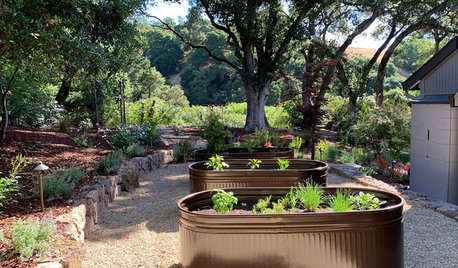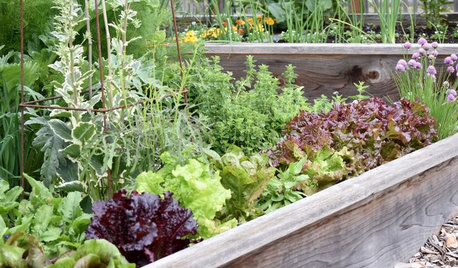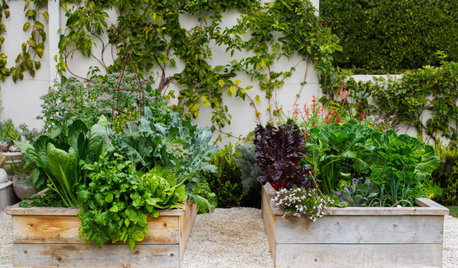Starting a small local farm as a career?
mike758
9 years ago
Related Stories

MIDCENTURY HOMESHouzz Tour: An Eichler Remodel Spawns a Design Career
A homeowner finds her true calling upon redesigning her family's entire California home
Full Story
FARM YOUR YARD6 Things to Know Before You Start Growing Your Own Food
It takes time and practice, but growing edibles in the suburbs or city is possible with smart prep and patience
Full Story
GARDENING GUIDESSeeds or Seedlings? How to Get Your Garden Started
Growing delicious herbs and vegetables starts with knowing your goals and when you want to plant
Full Story
MOST POPULARHow to Start a Cool-Season Vegetable Garden
Late summer and late winter are good times to plan and plant cool-season crops like salad greens, spinach, beets, carrots and peas
Full Story
HOUZZ TOURSMy Houzz: It All Started With a Rug
One floor covering from Kazakhstan inspires a whole global vibe in a traveler’s San Francisco apartment
Full Story
DESIGN PRACTICEDesign Practice: Start-up Costs for Architects and Designers
How much cash does it take to open a design company? When you use free tools and services, it’s less than you might think
Full Story
KITCHEN DESIGNStylish New Kitchen, Shoestring Budget: See the Process Start to Finish
For less than $13,000 total — and in 34 days — a hardworking family builds a kitchen to be proud of
Full Story
ARCHITECTUREDesign Practice: How to Start Your Architecture Business
Pro to pro: Get your architecture or design practice out of your daydreams and into reality with these initial moves
Full Story
GARDENING GUIDESHow to Stop Worrying and Start Loving Clay Soil
Clay has many more benefits than you might imagine
Full Story
FUN HOUZZ14 Things You Need to Start Doing Now for Your Spouse’s Sake
You have no idea how annoying your habits at home can be. We’re here to tell you
Full Story






Lloyd
elisa_z5
Related Professionals
Wrentham Landscape Architects & Landscape Designers · Springfield Landscape Contractors · Stoughton Landscape Contractors · Emmaus Landscape Contractors · Lees Summit Landscape Contractors · North Plainfield Landscape Contractors · Riverhead Landscape Contractors · West Allis Landscape Contractors · West Coon Rapids Landscape Contractors · Ansonia Landscape Contractors · Landover Outdoor Lighting & Audio Visual Systems · Boynton Beach Decks, Patios & Outdoor Enclosures · Fort Mill Decks, Patios & Outdoor Enclosures · Freehold Decks, Patios & Outdoor Enclosures · Universal City Decks, Patios & Outdoor EnclosuresKimmsr
pnbrown
eibren
lucillle
mike758Original Author
floral_uk z.8/9 SW UK
FrancoiseFromAix
elisa_z5
mike758Original Author
jean001a
elisa_z5
mike758Original Author
jean001a
nc_crn
lucillle
elisa_z5
mike758Original Author
elisa_z5
mike758Original Author
elisa_z5
Kimmsr
steffb
steffb
pnbrown
pnbrown
steffb
pnbrown
steffb
pnbrown
FrancoiseFromAix
steffb
FrancoiseFromAix
pnbrown